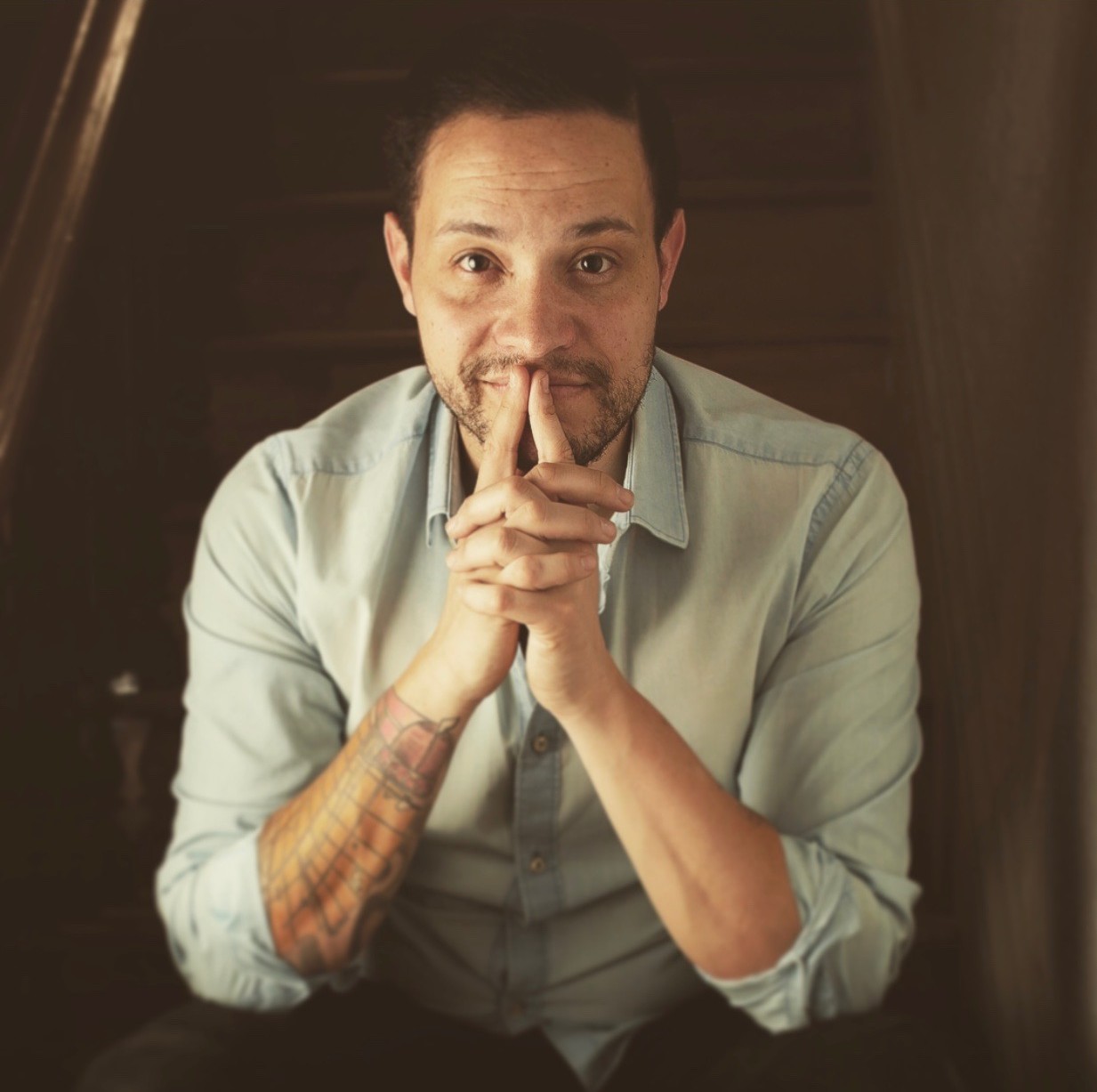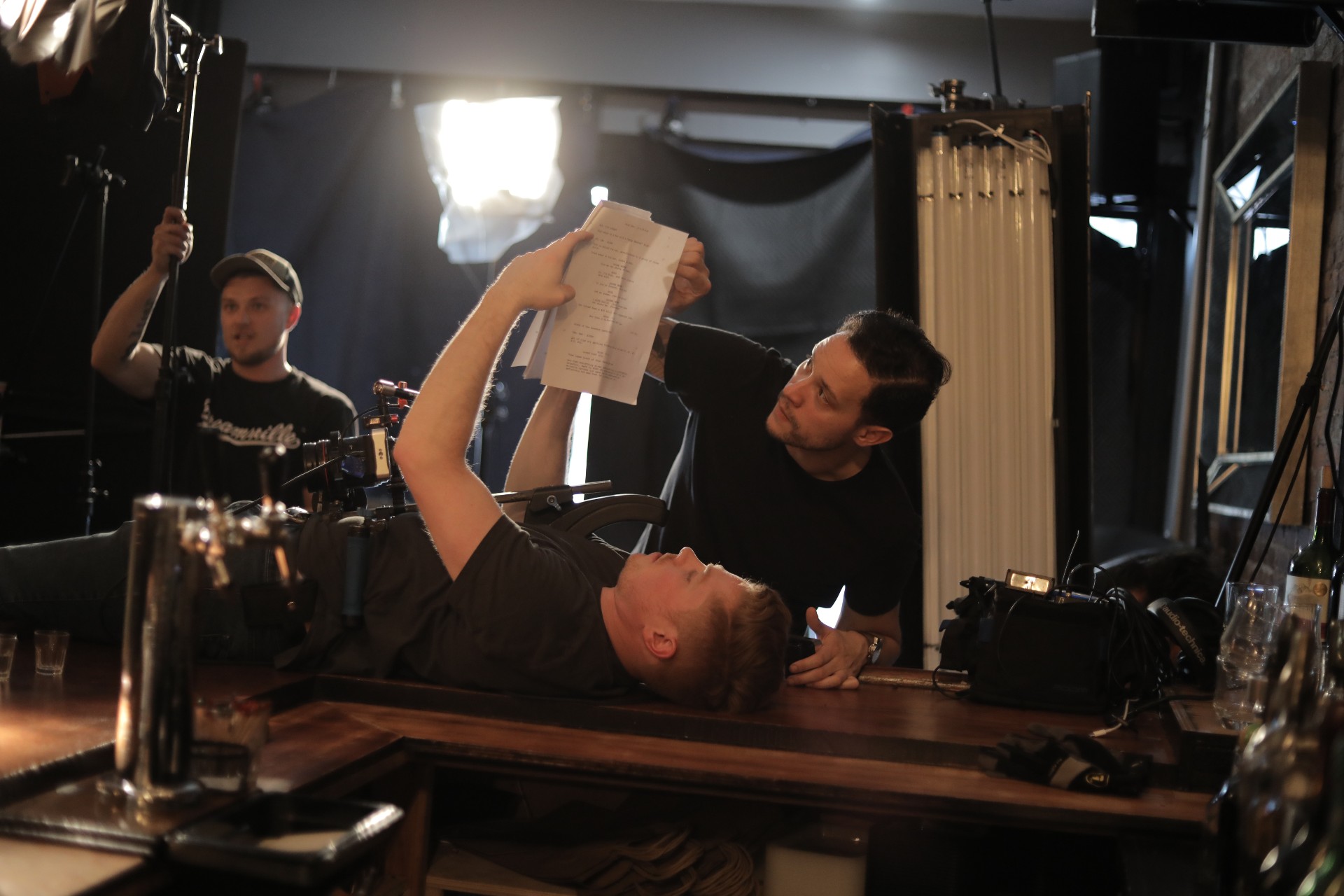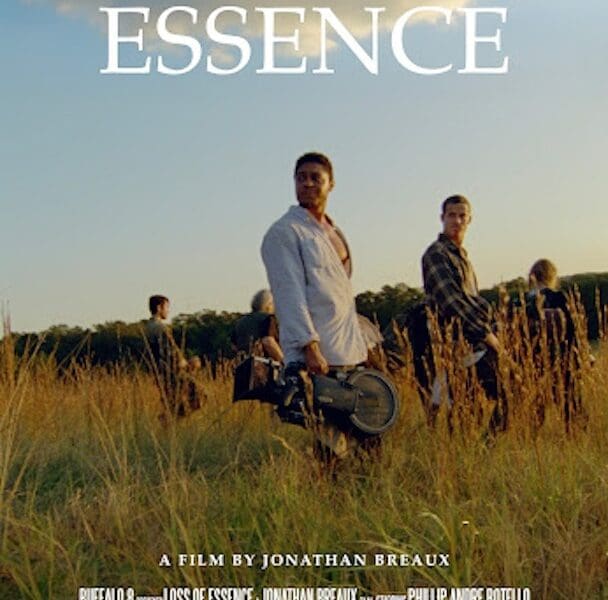
Personal insights: Get to know ‘All We Have Left’ director Théo Mahy
Théo Mahy wants to bring his own perspective to the table. The French filmmaker has been in love with cinema since he was a child, as he made his first short film when he was 14. He’s since gone on to release several acclaimed titles, including The Audience, Awakened, and First World Struggles. He’s also notched additional credits as a screenwriter and producer.
Mahy’s latest effort, All We Have Left, is perhaps his most ambitious film yet. All We Have Left stars Dree Hemingway and was shot during the COVID-19 lockdown, which forced Mahy to come up with creative directorial solutions to tell the story. The film is due for release sometime summer.
Film Daily had the pleasure of talking with Théo Mahy about his influences, his artistic process, and his upcoming projects. Here’s what he had to say:

Tell us about your journey into filmmaking. What did you do before a career in film?
It has not been a straight path. I joined the film program in high school in Aix-en-Provence, the city I grew up in. But then after high school I went to university and studied law for a while. No one was really coming out of highschool to make movies. I absolutely didn’t like law school, I was miserable. At the same time I worked in bars and nightclubs to make money and financed some shorts. The hospitality business is how I got the opportunity to move to the US.
In New York I managed a couple of restaurants but all I was thinking about was how to make movies. I found ways to work in the industry, at first I was saying yes to anything that could put me on set and that was a fantastic learning experience. I worked in the lighting, camera, sound department, also along with an established AD and line producer. I was studying each one of them to learn the craft of filmmaking. That’s how the journey started.
Was there any particular film or TV show that inspired you to become a filmmaker?
I grew up in the projects in France and watched a lot of French New Wave and Italian Neorealism films that I felt very connected to. Their depictions of classes, and the “realness” in their approach of filmmaking without any pretension make me fall in love with movies. I had this burning desire to tell the story of the underdog, tales that were against the codes.
I realized watching those films that we could talk about anything and actually the beauty of cinema was to shake the mentalities, give the audience something to think about, while using irony, and making them laugh at the same time. Even now I repeat it, a movie is wonderful entertainment but can’t settle without a purpose. We are lucky enough to work in this industry with worldwide reach that we ought to ourselves to make movies with something to say.
What was the first project you worked on, and what did you learn from the experience?
I made my first film when I was 14, called Lost in Reality. I took a lot of liberties at the time that paid off. The film got into the Lunel film festival in the south of France. For me it was totally lunaire to make a movie and get into a film festival. It was a wonderful experience that taught me that everything is possible as long as you are willing to make the effort to do it.
What do you look for when deciding on a project to work on?
I want to be emotionally connected. I tend to be attracted to projects that are either based on real life events or somehow reflect the society we are living in. Human connections, relationships, social and political upheavals. I’m looking for a project where any one of us can see a part of him or herself.
Who are your current influences?
Nowadays we are lucky to be in an era with a lot of content being created. I’m impressed by the work of Greta Gerwig. I love how she explores the power dynamic at play when we are confronted with our own decisions. She has an unique approach to performance, her work is perfectly mapped out but at the same time charged with carefreeness, embracing a sort of uncertainty that we can all rely on.
Martin Scorsese is and will always be one of my biggest influences. He reinvented cinema and is still making the most influential movies. I love the way he uses the camera and explores immersive cinema techniques like breaking the 4th wall or freeze frame. He has this capacity to capture the audience on a journey with him even if it’s for 3 hours and a half.
What are five films you think everyone should watch in their lifetime?
That’s a tough one.
In the Mood for Love, from Wong-Kar Wai for the striking visual, his explorations of tragic love made of a burning desire.
Persona from Ingmar Bergman because we can all hear that little voice in our head.
Jules & Jim, from Francois Truffaut, an unpretentious story about friendship and love that is a good reminder that every adult still has this part of the child in them to nurture.
Ava DuVernay realized a tour de force with 13th, there is a lot that still needs to be learned and her film is a mandatory lesson to shape a brighter future.
Goodfellas because Scorsese is a master, the Copacabana shot is unique, and “Sunshine of Your Love” makes [Robert] De Niro shine.

Do you have any experience with mentors? If so, are they useful to up and coming filmmakers?
I think they are very useful. I had experiences in New York working under the wings of someone with years of experience and it had been tremendously important in my development as a filmmaker. But a mentor doesn’t necessarily mean to be with someone on a day to day basis, you can pick books, read 5o biographies of filmmakers that you like, see which one resonates to you, go to the library and learn everything you can about her. I read everything I could find about Truffaut, watched Les 400 coups, Jules & Jim, Day for Night and all his films so many times that I learned from him like if I had a mentor next to me.
We can learn from the best reading or watching from our couch. We have such a young industry with an impressive amount of resources available right there. This is a limitless process that I love and helps me to keep constantly evolving.
What made you want to pursue filmmaking in LA versus your home country of France?
I grew up in the South of France which was a wonderful place to live and grow up and at the same time not the place you want to be to make movies. I have always been attracted to the US. I wanted to try it out. I don’t remember it but my mom says that when I was 5 years old I was using a toilet paper roll as a camera and was telling her that one day I would be making movies in”La Grosse Pomme” – “The Big Apple”. I had this vision of America that you can do whatever you want as long as you are working hard and giving yourself the opportunity to do it.
I was seeking that kind of challenge early in my twenties. It’s almost like Aix-en-Provence at some point was too small for me and I was also losing myself in the nightlife. Really. I needed to get out of there, exit this lifestyle that was fun but unsustainable in the long run. I needed to refocus pronto. I had the opportunity to leave.
Within a month I went to the embassy, did everything I had to for my visa et voila I was off to the US. Now, when I look at it, that was the best decision I took and I love my life in LA but it came with a lot of sacrifices as well. In the future I would love to make films in France as well, bringing the experience I gained to my home country.
How did you get attached to All We Have Left?
It went fast, I was writing the script when I met a producer who was interested in developing the film. Since nothing was really happening during the early days of the pandemic we quickly figured out what we wanted to do.
What was it like working on All We Have Left?
Challenging for sure. Filming during the pandemic was a gamble. I’m very proud of the team and what we achieved. The crew was amazing, we were all on the same page, very excited to work despite the circumstances. Dree Hemingway who starred in it was wonderful, very understanding and easy to work with. Life was uncertain for many of us and at the same time I saw a team of people with a very high level of professionalism and love for cinema.
On set, you wore numerous hats. How do you juggle so many responsibilities?
I wore many hats because I worked on a lot of indie projects where we often can’t afford to have every position filled out but lately I have been focusing solely on writing and directing which is what I really feel connected to and love doing. Filmmaking is such a collaborative process that I prefer to wear fewer hats and focus on what I know I can handle to the best of my abilities.
Could you ever see yourself stepping in front of the camera?
Not for now, I really like being behind the camera, I love the filmmaking process working with actors, and all the crew. I starred in my first film for the first and only time, that was fun but that was also 18 years ago. I’m not closing any doors but for now this is not a specific goal that I have in mind.
What’s your favorite part of the filmmaking process?
Everything is so charming, there is an excitement shooting on set, and an adrenaline that carries everyone to push their boundaries. The pre production process is fascinating and I really like crafting the film. I found the storyboarding process to be very sexy, it’s when you see for the first time the script coming to paper. I love long days, I might be the only one though. But I really do love it when I reach this exhausted state at the end of a busy day, where we got what we were seeking.
It’s almost a meditative state and I can get past the fatigue because my spirits are lifted by what we did. But by far my favorite part of filmmaking is the connection with the team. I love sports and I find filmmaking being very close to a sporting event. Like a soccer game for example, you have to rally the troops. When you have a strong, trusting team you can go anywhere and take on any obstacles.
Me as the director, I’m the captain of the ship and I have to show the example to my crew for all of us to be successful. It reminds me of life, we are playing a game against time, conditions, sound, weather, unknown circumstances and only together can we make it happen.

What do you hope audiences take away from watching All We Have Left?
I’m not really big on taking away from film, watching a film is such a personal experience, I’m trying to make films that push the viewer to ask herself/himself questions and have their own experience. I find it to be the beauty of filmmaking.
I, as the filmmakers, make movies that I would like to watch and I know that I will get something different from it when watching it many times, at different times of my life, or in a certain emotional state I’m in. The one take away from All We Have Left would be to love life again despite the craziness of the past 18 months, we as humans have a lot of good and love to share.
Where do you see yourself in five years?
I would like to spend more time between France and the US. All my family is still in Provence and I don’t want to miss those years. Living 6 months in each country would be ideal. On a professional stand, I’m very much looking forward to seeing how our industry will evolve and I’m confident opportunities will arise for filmmakers. For a while I also had the desire to open a film school in Cameroon, where my grandfather was born. There are a lot of talented people that can’t get any exposure for lack of resources, equipment or else. That would be a terrific achievement for me.
What advice would you give a younger version of you?
Follow your passion, This is not an easy path, buckle up and enjoy the ride. Do not worry even when times are harsh, when you think there is nothing for you and that you won’t be able to stand up again, there are some lessons to learn, experience to gain and what you find at the end of the tunnel is worthwhile. The rewards would not be pretty if you didn’t have to go through a hell of a journey to get them.
If any director could direct the story of your life, who would you choose, and why?
That’s a great question. I would have picked Agnes Varda, unfortunately she passed away a few years back. The way she could make something very personal part of a big picture was remarkable and she was very curious about other people’s lives. I would probably choose Wong-Kar Wai: I find his visual sensibility very appealing, I’m amazed by the way he tackles romanticism in life juggling with time, space, memories and desires. He has this capacity to transcend artistic boundaries telling stories through mood, almost snapshots of moments rather than following a conventional plot which I feel my life would be well told that way.
If you could only watch one movie for the rest of your life, what film would you choose?
I would be very sad. But I will probably choose Rashomon so I can have a different story all the time. [Director Akira] Kurosawa might have thought of that when crafting that film. Who knows!
What has been your biggest success and failure to date?
In 2018 I shot a film called Awakened. I wasn’t ready for it, I might have been too cocky from my previous films, thinking I could pull it up easily but I failed. I rushed in writing the script, I didn’t prepare myself properly for principal photography and I didn’t get the result that I was expecting at all. The rushes are still on a Premiere timeline but nothing good can come from it.
I learned a lot, especially about the writing process, the script is by far the most important piece of work you need to have done before anything else. I welcome those kinds of mistakes because of the lessons they teach me. I’m always seeking personal insights and trying to be a better version of myself, when you suck like I did I can tell you that the next time you are ready and will not forget that failure.
Success wise I’m such a perfectionist that I still have a lot to do. I’m proud of what I accomplished and the ground I covered so far. It hasn’t always been simple. When I talk to my mom or my grandmother who reminds me where we come from, that makes me very excited for the future because I know a lot happened and it will continue that way. Life is fun.
What’s next on the docket for you?
I’m currently in Italy scouting for a film called Amour Propre that we will be shooting in the fall. I’m looking forward to this one and I just finished writing a script called Ubuntu: An African Story, which is a very personal story that means a lot to me. It’s a rite of passage story in Africa, inspired by my real life, when my grandfather took me from France to Cameroon to be introduced to the village he grew up in to become a man. It’s a crazy story, honestly, that I’ve been waiting to tell for a long time.
Honestly I can’t wait to work again!







